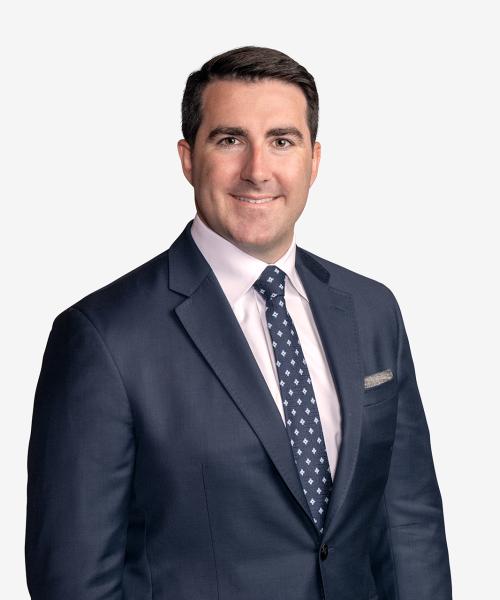Whistleblower Collects on Cybersecurity FCA Case

Litigation Developments
Whistleblower Collects on Cybersecurity FCA Case
On July 31, 2019, Cisco Systems agreed to pay $8.6 million in civil damages to settle claims that it sold video surveillance technology with known security flaws to several state and federal government agencies, including Homeland Security, the Secret Service, the Army, the Navy, the Marines, and the Air Force. Significantly, the company’s settlement includes approximately $1.6 million to a whistleblower, which is the first time a payment has been made on a False Claims Act case involving cybersecurity vulnerabilities.
Although a subcontractor for Cisco warned the company of the security vulnerabilities in 2008, the Company allegedly had not addressed the flaws by June 2010, which prompted the subcontractor to notify the FBI. The subcontractor was allegedly able to hack into the video software and take over the surveillance system without being detected. Nevertheless, when Cisco sold the technology to the government agencies, it allegedly represented that its products were compliant with the federal government’s National Institute of Standards in Technology framework. But the vulnerabilities rendered the video surveillance software noncompliant with the federal framework.
The case was filed in the United States District Court for the Western District of New York. Eighteen states and the District of Columbia joined the Justice Department in the claim against Cisco and fifteen states and the District of Columbia recovered under the settlement.
The case is US et al. ex rel. Glenn v. Cisco Systems Inc., No. 1:11-cv-0400 (W.D.N.Y.).
Medicare Advantage Provider Resolves Allegations in Whistleblower Lawsuit
On August 8, 2019, California-based Beaver Medical Group L.P. and one of its physicians agreed to pay approximately $5 million to settle allegations that they reported invalid patient diagnoses to the Medicare Advantage program in order to receive inflated payments.
Under the program, Medicare beneficiaries may obtain coverage through private insurance plans owned and operated by private insurers, known as Medicare Advantage Organizations (MAOs). MAOs are paid fixed amounts by Medicare to provide coverage to Medicare beneficiaries who enroll in their plans. Medicare then adjusts these payments to reflect the health status of each beneficiary. Generally, Medicare pays MAOs more for unhealthy beneficiaries than beneficiaries with fewer medical issues. The Department of Justice claimed Beaver and the doctor knowingly submitted diagnoses unsupported by medical records in order to inflate the payments that the MAO received from Medicare.
Several insurers in California contracted with Beaver to provide healthcare to people with Medicare. Because Beaver received a share of the payments the insurers received from Medicare for patients who were under its care, the medical group allegedly had a financial incentive to submit additional diagnosis codes to insurers to inflate the payments received from Medicare. The settlement resolves the claims, and the former employee who brought the FCA case will receive about $850,000 from the settlement.
Read the DOJ press release announcing the settlement here.
Doctor Sued Under False Claims Act for Administering Unnecessary Drug
The Department of Justice filed a False Claims Act complaint against Preventative Medicine Anti-Aging & Chelation, Inc. and a Georgia-based doctor, alleging the defendants submitted false claims to Medicare for medically unnecessary chelation therapy. Although the therapy is generally used to treat lead and other heavy metal poisoning, the Department of Justice claims the doctor administered chelation drug edetate calcium disodium (EDTA) to Medicare beneficiaries who were not suffering from lead poisoning. The doctor had previously relocated from Tennessee to Georgia over a medical licensing dispute concerning the use of EDTA.
The government alleges the doctor touted EDTA as a treatment for several conditions besides lead poisoning, including heart disease, fatigue, and osteoarthritis. Medicare, however, does not cover EDTA chelation therapy for alternative and/or experimental treatments. According to the complaint, the defendants allegedly billed Medicare for more than $3 million for chelation treatments for 344 people, but there were no reported blood tests showing lead poisoning among patients 65 and older in the counties served by the doctor.
Under the False Claims Act, the doctor’s practice faces treble damages—more than $9 million. The lawsuit further requests the court to impose civil penalties of $5,000 to $11,000 for each false claims the medical practice submitted to Medicare.
The lawsuit is captioned United States v. Robert C. Burkich, M.D., et al., Civil Action No. 1:19-cv-03510 MLB (NDGA 2019). Read the DOJ press release here.
SEC Developments
SEC Wins Insider Trading Trial
On August 14, 2019, a jury found Raymond J. Pirrello, Jr., a securities broker, liable for insider trading relating to three merger and acquisition transactions. The Securities and Exchange Commission obtained a final judgment against the other defendants in the action earlier in August 2019.
The complaint alleged that Thomas W. Avent, Jr. learned confidential information about the three potential acquisitions of publicly traded companies when he was conducting tax due diligence work as a partner at an accounting firm. According to the SEC, Avent tipped his stockbroker, Pirrello, about the planned acquisitions. Pirrello, in turn, tipped a friend and former colleague, Lawrence J. Penna, Jr.
The SEC detailed the alleged tipping in the complaint, relying on text messages exchanged between the defendants, among other evidence. Pirrello allegedly asked Penna, “How many did we get?” Penna answered, “2500.” Pirrello responded, “We should make 25K.” To which Penna replied, “Only Bgt Stock – should I go back for more?” After the public announcement, Penna texted Pirrello, “A little over 15k. Not too bad. :)” Avent and Penna ultimately settled the claims against them, but the case against Pirrello proceeded to trial.
At trial, the SEC showed evidence that Pirrello received confidential nonpublic information about the impending acquisitions from Avent, and subsequently tipped Penna. The SEC also showed Penna traded in the securities of each of the three companies. According to evidence presented during the trial, Penna and his family made at least $107,922 in illicit trading profits, and shared at least $21,500 of these profits with Pirrello. The jury found Pirrello liable on all counts, finding that he violated Sections 10(b) and 14(e) of the Securities Exchange Act of 1934, and Rules 10b-5 and 14e-3 thereunder.
Contacts
- Related Practices






